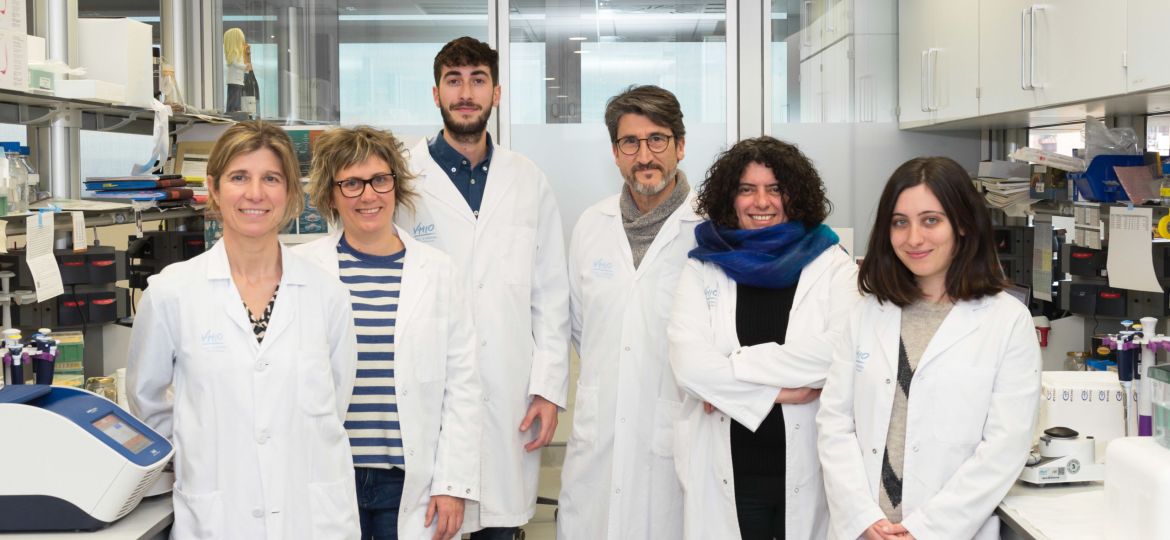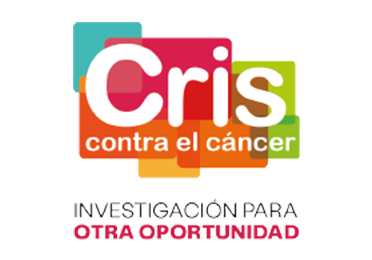
First authored by Gemma Montalban, formerly a Graduate Student at VHIO’s Oncogenetics Laboratory of our Hereditary Cancer Genetics Group directed by Judith Balmaña, a Research Article recently published in Human Mutation* has now been selected as an Editor’s Choice, and is now available online and open access for the next two months.
This present study, also authored by Orland Díez, Senior Scientist of the same group, elegantly evidences the utility of functional RNA assays to identify clinically actionable variants in BRCA1/2 genes, thus constituting an important advance towards more accurately estimating cancer risk in patient populations baring these pathogenic variants.
Corresponding and Senior Author, Sara Gutiérrez-Enríquez, who is also a Senior Scientist of Hereditary Cancer Genetics at VHIO, said, “Given that hereditary breast and ovarian cancer account for between 5-10% of these tumor types, and that deleterious variants in the BRCA1/2 genes are responsible for an estimated 15-20% of cases, we need to move faster and get smarter in interpreting these modifications and their impact on splicing.”
“Carriers of these variants are at a significantly increased risk of developing breast cancer and/or ovarian cancer. We must strive to more faithfully guide genetic diagnosis, and reverse current challenges including the identification of variants of unknown significance (VUS) whose clinical readings pose an important challenge for genetic counseling,” added Gemma Montalban.
Supporting the need to apply semi-quantitative or quantitative assays to better decipher the clinical relevance of these spliceogenic modifications, this work, which derives from Gemma Montalban’s thesis at VHIO, represents a forward step in this direction.
Aimed at ultimately achieving a more accurate clinical interpretation of genetic variants and splicing alterations that can predispose to increased risks of developing breast and ovarian cancer, the researchers characterized the splicing impact of 31 BRCA1/2 variants by incorporating semi-quantitative or quantitative assays.
In so doing, they sought to more faithfully establish the clinical relevance of splicing processes in these cancer susceptibility genes, and show that these quantitative insights should be included in current variant classification guidelines to render variant analysis more precise.
“The faithful clinical classification of VUS and a deeper understanding of the disruptors of splicing processes in cancer are critical since pathogenic carriers can reduce their cancer risk by following tailored screening and surveillance programs,” observed co-author and VHIO Principal Investigator, Judith Balmaña.
“Further, the more accurate measurement of these data will finely tune the genetic diagnosis of patients, and also facilitate informed decision making regarding prophylactic surgery and treatment with targeted strategies such as PARP inhibitors,” she concluded.
To access this Editor’s Choice article please click here.
This work was partly supported by the Spanish Institute of Health Carlos III (ISCIII) – the Spanish Ministry of Economy and Innovation (FEDER funding), and the Spanish Association against Cancer (AECC). VHIO also acknowledges and gratefully thanks the CELLEX Foundation its state-of-the-art research facilities and scientific equipment.
###
* Incorporation of semi-quantitative analysis of splicing alterations for the clinical interpretation of variants in BRCA1 and BRCA2 genes. Montalban G, Bonache S, Moles-Fernández A, Gadea N, Tenés A, Torres-Esquius S, Carrasco E, Balmaña J, Diez O, Gutiérrez-Enríquez S. Hum Mutat. 2019 Jul 25. doi: 10.1002/humu.23882.










